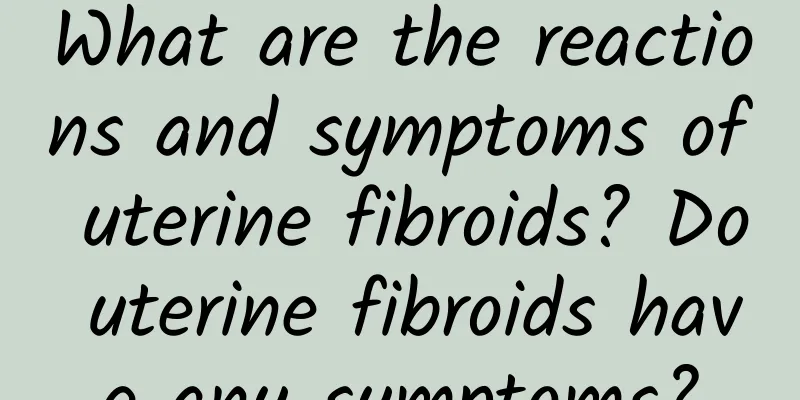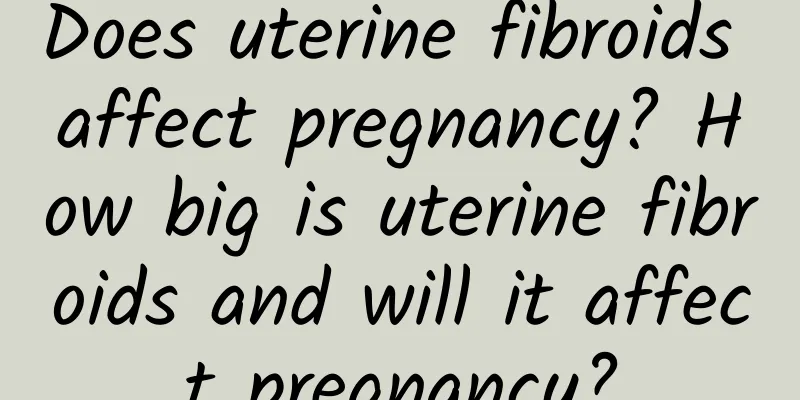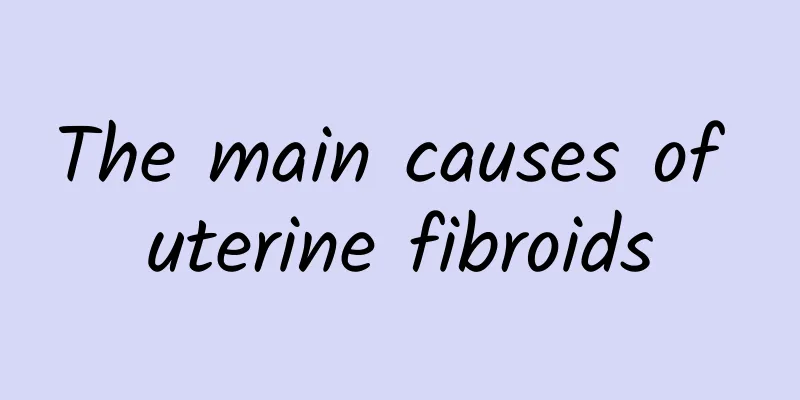What are the reactions and symptoms of uterine fibroids? Do uterine fibroids have any symptoms?

|
Uterine fibroids are the most common benign gynecological disease. Many female friends have experienced or are experiencing this problem. So, what are the reactions and symptoms of uterine fibroids? Some people say that uterine fibroids are asymptomatic. Is this true? Now let's take a closer look. First, let's understand what uterine fibroids are. Uterine fibroids are a common benign tumor in gynecology. They are usually composed of cells in the endometrium, rectum, bladder, and uterine wall myometrium. Uterine fibroids vary in size and number. They can be a small nodule or multiple nodules. Next, let's take a look at the reactions and symptoms of uterine fibroids, which are listed below: 1. Abnormal uterine bleeding: Because uterine fibroids are located inside the uterine wall, when the fibroids grow, they may compress the endometrium and cause abnormal uterine bleeding. This uterine bleeding may be manifested as excessive menstruation, prolonged menstruation, and prolonged menstruation. 2. Irregular menstruation: The presence of uterine fibroids may cause women's menstrual cycles to become irregular. For example, the interval between menstruation may be shortened, or there may be irregular bleeding in between. 3. Pelvic pain: If the uterine fibroids are located lower, they may compress nearby tissues or nerves, which can cause pelvic pain. This pain may be cyclical or continuous. 4. Difficulty urinating: When uterine fibroids grow larger and press on the bladder, it may cause difficulty urinating. 5. Bleeding during sexual intercourse: The location of some uterine fibroids may cause vaginal bleeding during sexual intercourse. This is because the presence of fibroids may cause the cervix to be compressed or irritated, causing vaginal bleeding. Although some of the reactions and symptoms of uterine fibroids are listed above, some female patients may not show any symptoms, which is not uncommon. In summary, the reactions and symptoms of uterine fibroids vary from patient to patient. Some women may have obvious symptoms such as abnormal uterine bleeding and irregular menstruation, while others may not feel any discomfort. Therefore, regular gynecological examinations and regular B-ultrasound examinations are very necessary to detect and treat uterine fibroids as early as possible. If you suspect you have uterine fibroids or have related symptoms, it is recommended that you consult a gynecologist in time and seek guidance and help from a professional doctor. Early diagnosis and treatment are essential to protecting women's health. |
Recommend
Keep away from vaginitis by cleaning every day
Vaginitis is a disease that many women have exper...
How to care for female cervical erosion 4 correct ways to care for cervical erosion
Cervical erosion is a common uterine cavity disea...
Barley nibbles! Can reduce the risk of cardiovascular disease
Primary and secondary school students have alread...
Eating sandwiches for breakfast is nutritious and healthy! Add 5 weight-loss-promoting fillings, so you won’t get fat after eating
It is a common habit for people to eat sandwiches...
Introduction to Endometrial Tuberculosis
Gynecological diseases often occur in female frie...
What are the causes of uterine prolapse?
What are the causes of uterine prolapse? The occu...
What to do if cervical erosion occurs before abortion? Get the abortion done first
Many female friends found that they had different...
Analysis of the causes of recurrent spontaneous abortion
Pregnancy is a happy yet thrilling process for wo...
Can B-ultrasound detect ectopic pregnancy?
Can B-ultrasound detect ectopic pregnancy? Gyneco...
What factors may cause pelvic inflammatory disease
Since pelvic inflammatory disease is a gynecologi...
How to choose a gynecological hospital for moderate cervical erosion
How to choose a gynecological hospital for modera...
How to prevent abortion syndrome
When it comes to abortion, most people may be fam...
What medicine can cure miscarriage?
What medicine can cure miscarriage? Although ther...
Can coarse salt be used for hot compresses in pelvic effusion?
Can coarse salt be used for hot compresses to tre...
Four effective methods for treating vulvar leukoplakia
Vulvar leukoplakia is a common gynecological dise...









